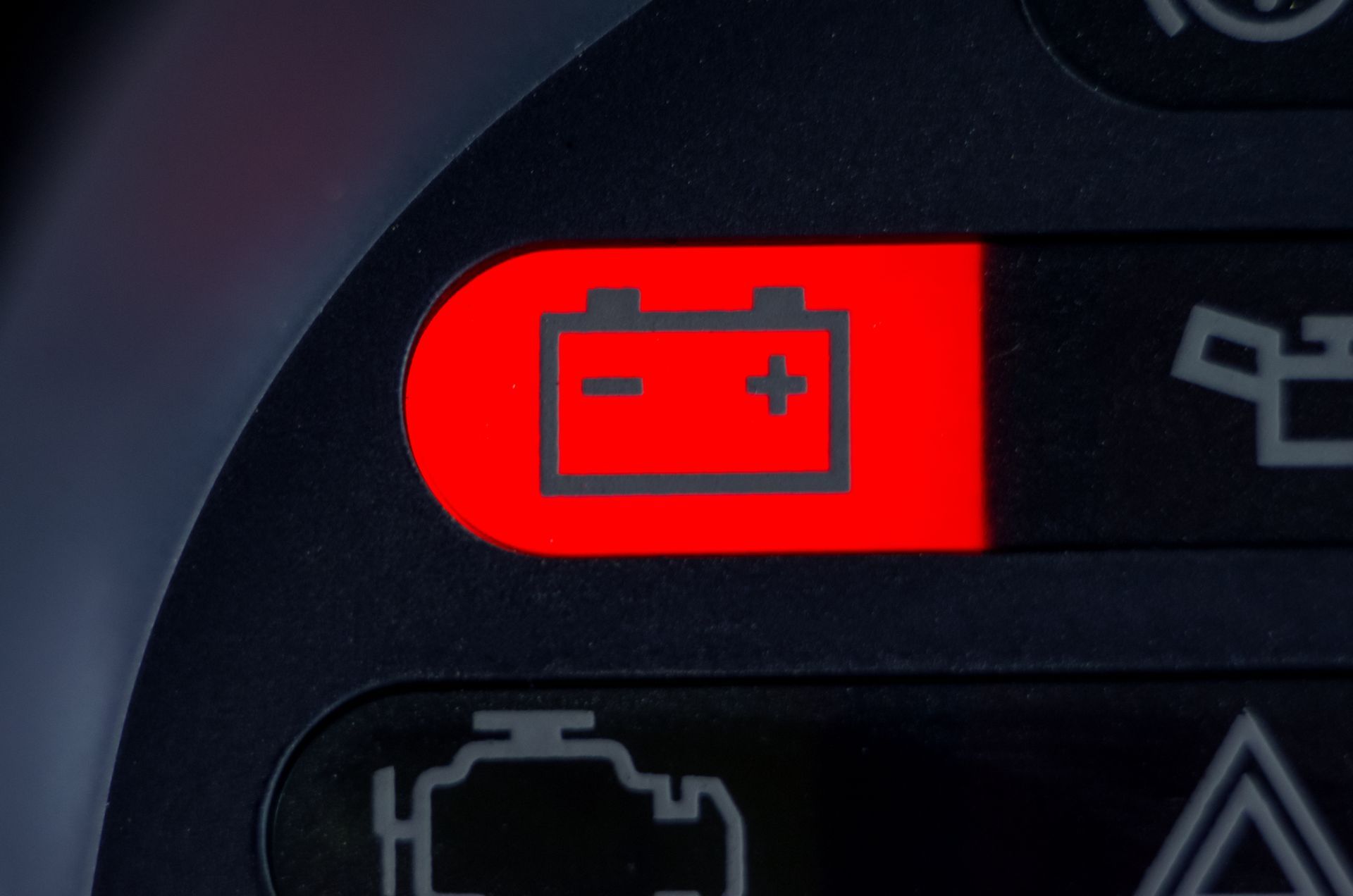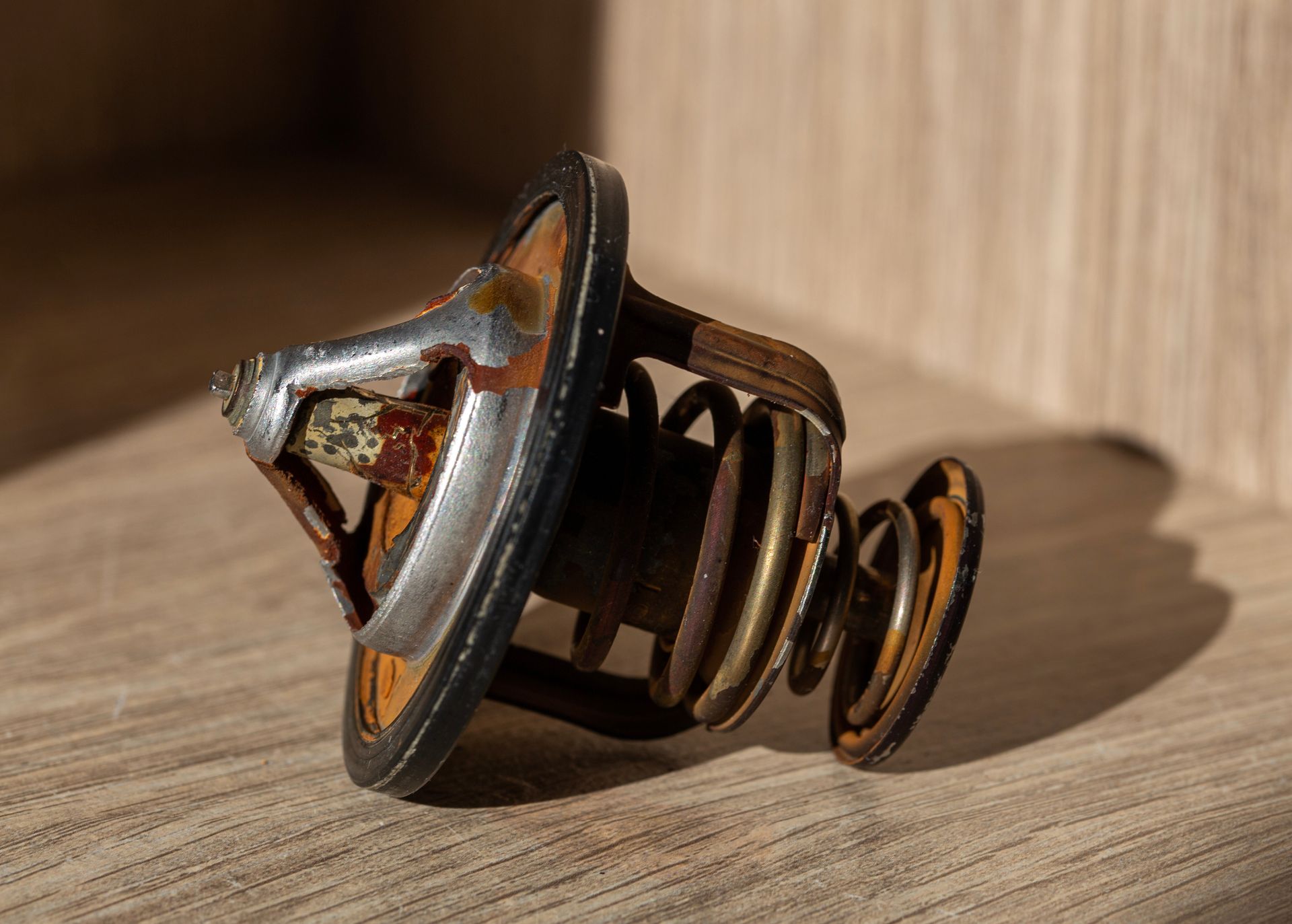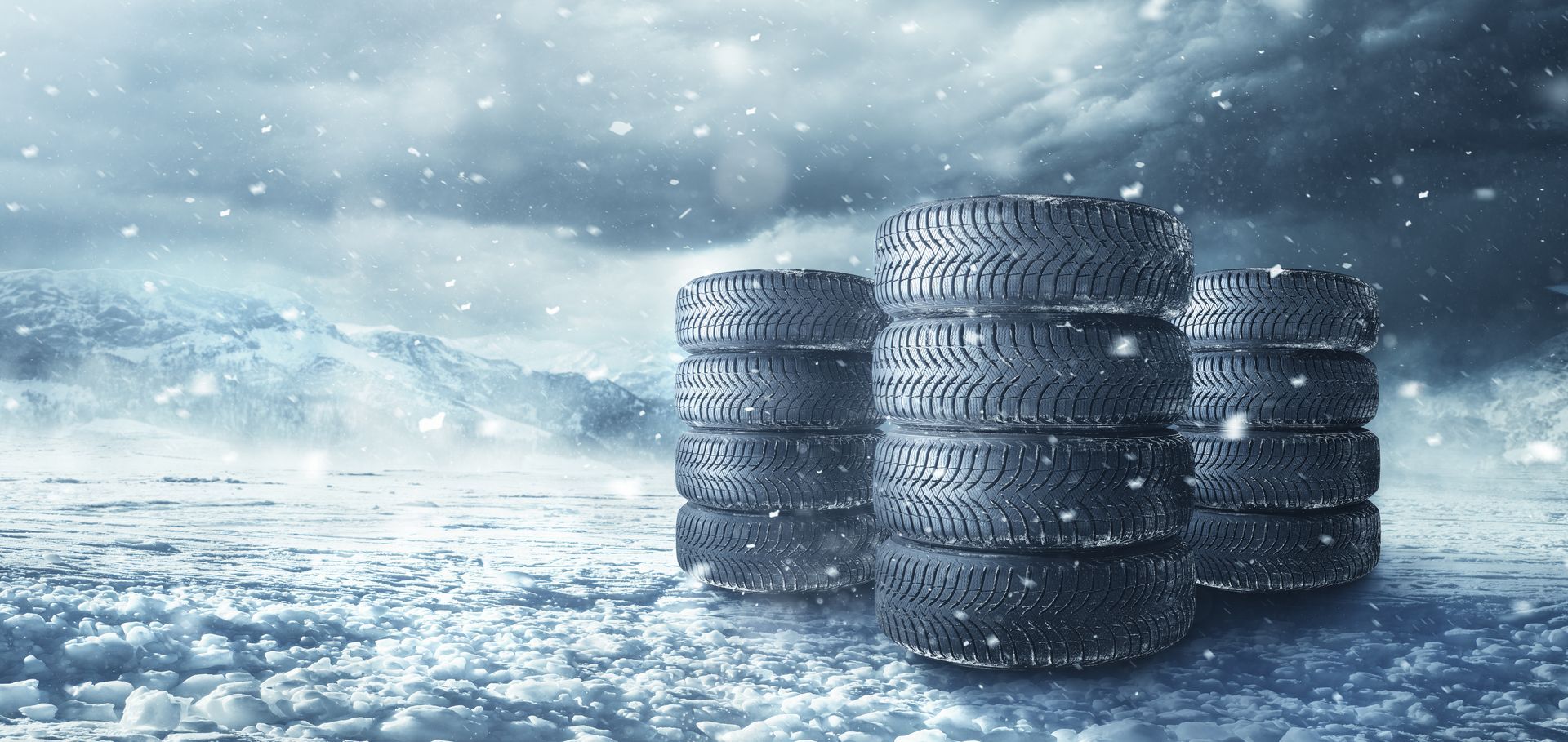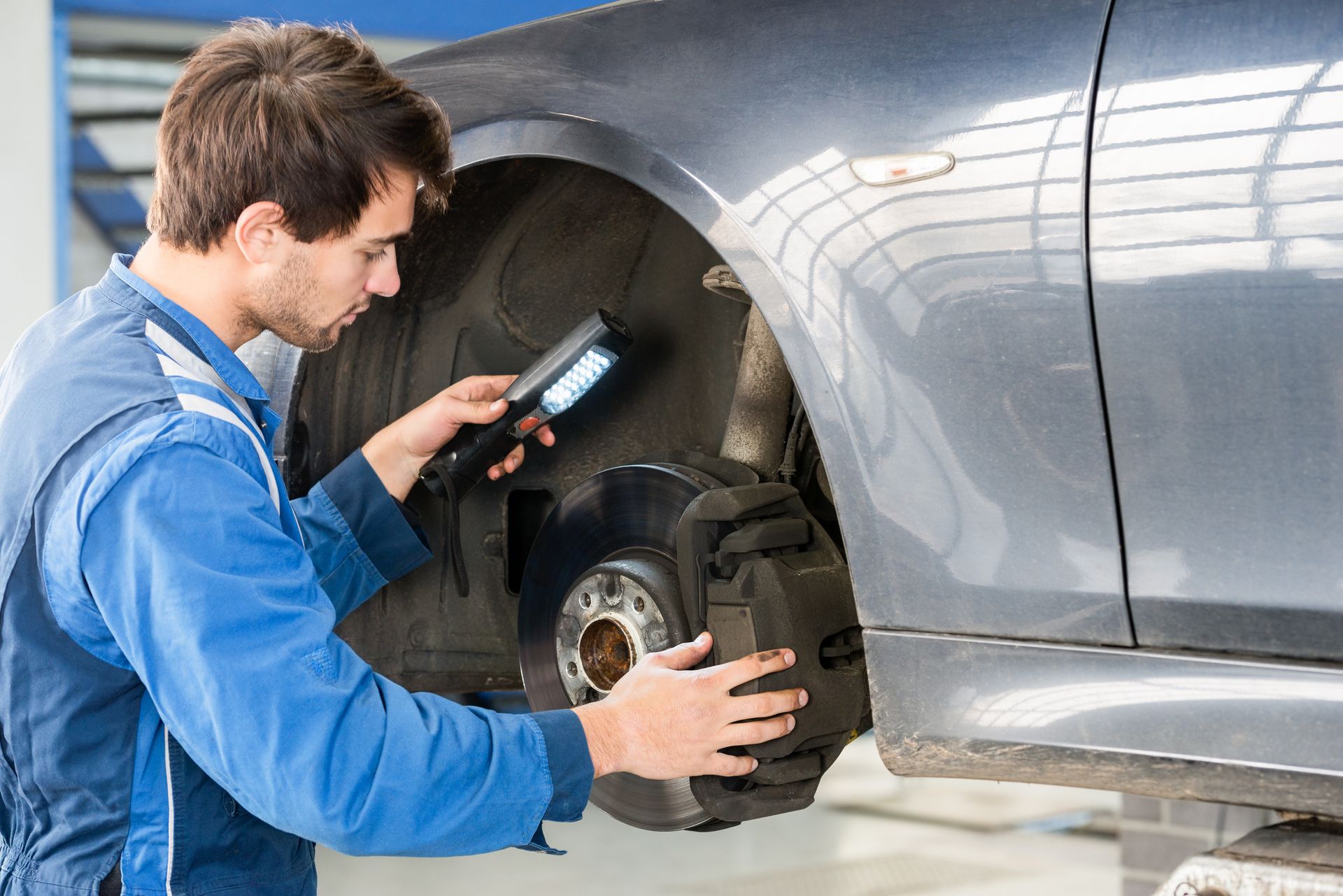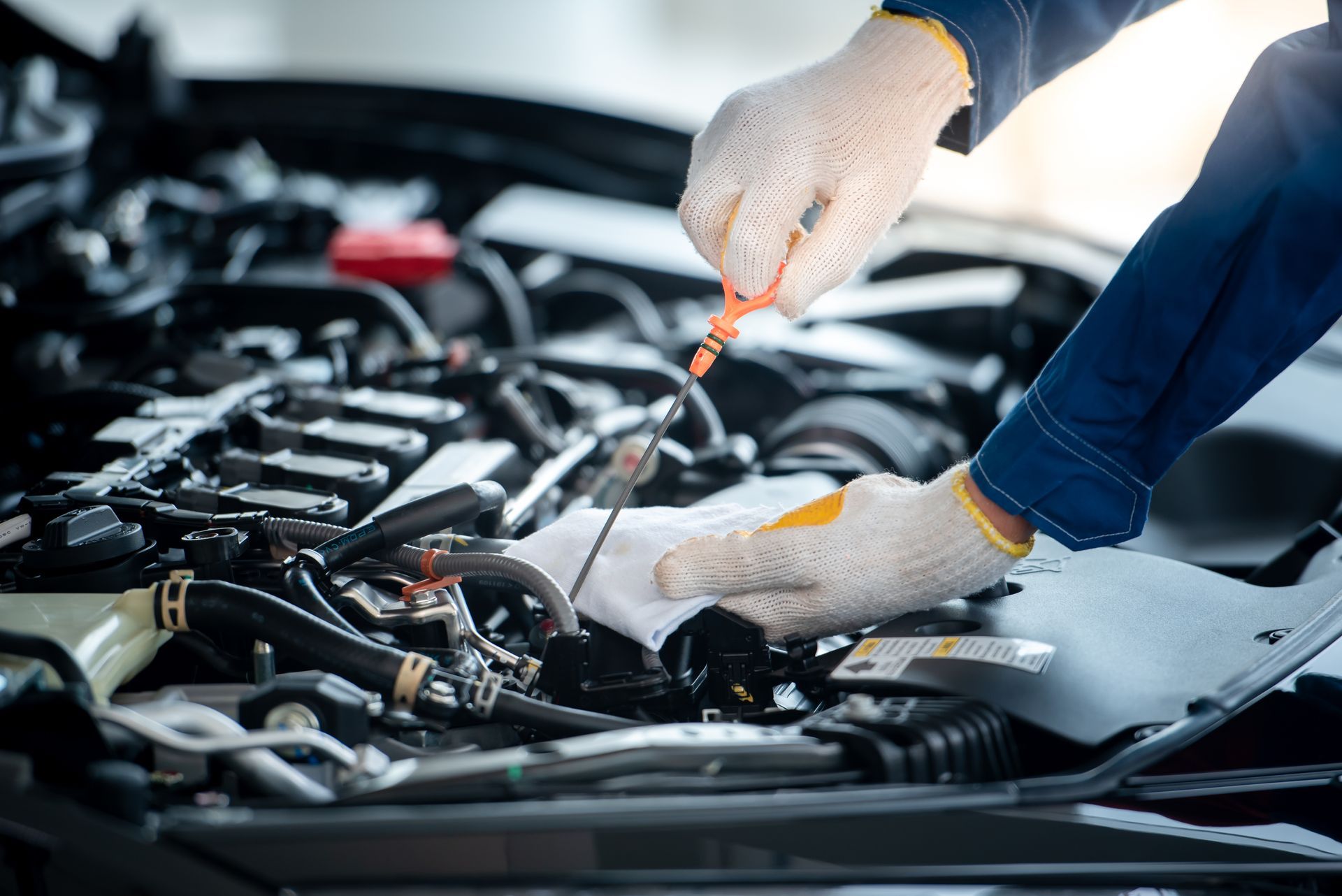Why Do Tires Lose Pressure in Cold Weather?
December 20, 2024
Ever noticed that as temperatures drop, your tire pressure warning light comes on? It’s a common phenomenon that can leave drivers scratching their heads. Tires might seem like rigid and durable components, but they’re surprisingly sensitive to environmental changes. Let's see why your tires lose pressure in cold weather and what you can do to stay safe on the road.
The Science Behind Temperature and Tire Pressure
When temperatures plummet, the air inside your tires reacts in a specific way. Cold air is denser, and as it contracts, it occupies less space. This contraction leads to a decrease in the internal pressure of your tires. For every 10°F drop in temperature, tire pressure can drop by 1–2 PSI.
This might not sound like a lot, but even a slight drop can impact how your car handles, especially in icy or snowy conditions. Proper tire pressure is critical for maintaining stability, grip, and fuel efficiency, making it essential to pay attention to those seasonal changes.
Why Proper Inflation Matters More in the Cold
Driving with underinflated tires isn’t just an annoyance—it’s a real safety risk. When tire pressure is too low, the tire's surface area in contact with the road increases. While this might sound like it could improve traction, it actually leads to uneven wear and reduced control, especially on slippery winter roads.
Low pressure also causes your car to work harder, which can affect fuel efficiency. In a season when grip and performance are already challenged, ensuring your tires are at the correct pressure is a simple way to enhance safety and performance.
Do All Tires React the Same Way
Nope! Not all tires are created equal, and their reaction to the cold can vary based on their design and materials. Summer tires, for instance, are made from rubber compounds optimized for warm weather. They harden significantly in the cold, making them lose flexibility and grip faster.
On the other hand, winter tires are designed with softer rubber that stays flexible even in freezing conditions. This makes them less prone to drastic pressure loss, although they’re not immune to it. All-season tires fall somewhere in the middle, offering decent performance but still requiring careful pressure monitoring.
Common Misconceptions About Tire Pressure Drops
A lot of people assume their tires might be leaking if they lose pressure in winter, but that’s not always the case. The majority of pressure loss during the cold months is due to natural air contraction rather than punctures or other damage. However, low temperatures can worsen existing issues, such as slow leaks from worn valve stems or damaged rims.
It’s always a good idea to check your tire pressure regularly during colder months, even if you’re not seeing warning lights. Preventative care can save you from bigger headaches later.
How to Combat Cold Weather Tire Issues
Want to keep your tires in good shape all winter? Here are some tips to help you out:
- Check Your Tire Pressure Weekly: Fluctuations in temperature can cause frequent changes in PSI. Make it a habit to monitor your tire pressure regularly with a reliable gauge.
- Inflate to Manufacturer Recommendations: Look for the recommended PSI on the driver’s side door jamb or in your car’s manual. Stick to that number to ensure optimal performance.
- Inspect for Damage: Cracks, bulges, or embedded debris can worsen in cold weather. Catching these issues early can prevent more significant problems down the road.
- Switch to Winter Tires: If you live in an area prone to snow and ice, winter tires can make a big difference in grip and safety.
By staying proactive, you’ll ensure that your tires are ready to handle whatever winter throws at them.
The Importance of Professional Inspections
Sometimes, it’s best to leave tire care to the experts. A professional inspection can identify underlying issues that might not be obvious, such as alignment problems or internal damage. Tire specialists also have the tools to perform thorough checks and ensure your tires are road-ready for winter.
Cold weather might be inevitable, but tire trouble doesn’t have to be. A little effort goes a long way in keeping you safe and your car running its best.
Protect your tires this winter with help from
Modern Mechanics. From pressure adjustments to full inspections, we’ve got you covered. Stop by or call us today!
Loading ...
Missing business hours data / Error occurred while getting the data.
Loading ...
Missing business hours data / Error occurred while getting the data.
Loading ...
Missing business hours data / Error occurred while getting the data.
Loading ...
Missing business hours data / Error occurred while getting the data.
Loading ...
Missing business hours data / Error occurred while getting the data.
Loading ...
Missing business hours data / Error occurred while getting the data.
Loading ...
Missing nap lines data / Error occured while getting the data.
Loading ...
Missing nap lines data / Error occured while getting the data.


